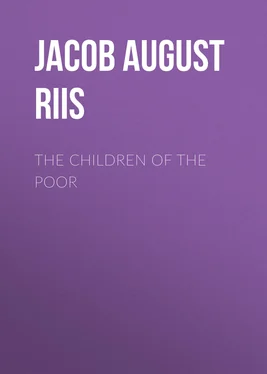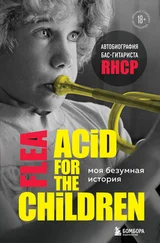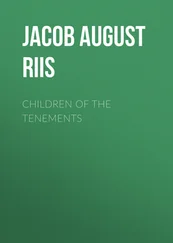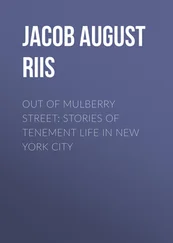Jacob August Riis - The Children of the Poor
Здесь есть возможность читать онлайн «Jacob August Riis - The Children of the Poor» — ознакомительный отрывок электронной книги совершенно бесплатно, а после прочтения отрывка купить полную версию. В некоторых случаях можно слушать аудио, скачать через торрент в формате fb2 и присутствует краткое содержание. Жанр: foreign_prose, sociology_book, foreign_antique, на английском языке. Описание произведения, (предисловие) а так же отзывы посетителей доступны на портале библиотеки ЛибКат.
- Название:The Children of the Poor
- Автор:
- Жанр:
- Год:неизвестен
- ISBN:нет данных
- Рейтинг книги:4 / 5. Голосов: 1
-
Избранное:Добавить в избранное
- Отзывы:
-
Ваша оценка:
- 80
- 1
- 2
- 3
- 4
- 5
The Children of the Poor: краткое содержание, описание и аннотация
Предлагаем к чтению аннотацию, описание, краткое содержание или предисловие (зависит от того, что написал сам автор книги «The Children of the Poor»). Если вы не нашли необходимую информацию о книге — напишите в комментариях, мы постараемся отыскать её.
The Children of the Poor — читать онлайн ознакомительный отрывок
Ниже представлен текст книги, разбитый по страницам. Система сохранения места последней прочитанной страницы, позволяет с удобством читать онлайн бесплатно книгу «The Children of the Poor», без необходимости каждый раз заново искать на чём Вы остановились. Поставьте закладку, и сможете в любой момент перейти на страницу, на которой закончили чтение.
Интервал:
Закладка:
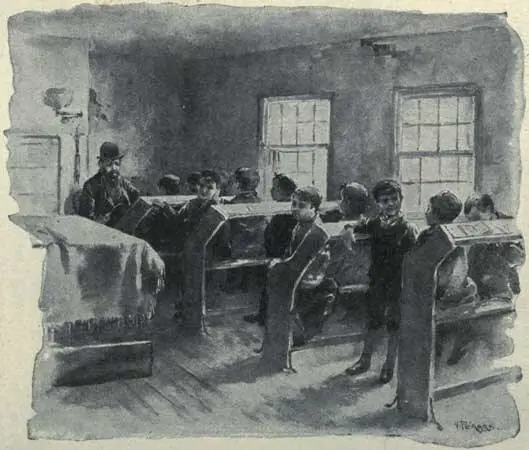
A SYNAGOGUE SCHOOL IN A HESTER STREET TENEMENT.
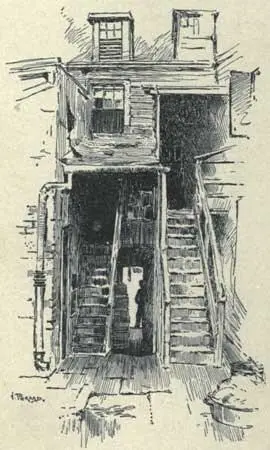
THE BACKSTAIRS TO LEARNING.
(ENTRANCE TO A TALMUD SCHOOL IN HESTER STREET.)
It is true that these tenement schools that absorb several thousand children are not what they might be from a sanitary point of view. It is also true that heretofore nothing but Hebrew and the Talmud have been taught there. But to the one evil the health authorities have recently been aroused; of the other, the wise and patriotic men who are managing the Baron de Hirsch charity are making a useful handle by gathering the teachers in and setting them to learn English. Their new knowledge will soon be reflected in their teaching, and the Hebrew schools become primary classes in the system of public education. The school in a Hester Street tenement that is shown in the picture is a fair specimen of its kind—by no means one of the worst—and so is the back yard behind it, that serves as the children’s play-ground, with its dirty mud-puddles, its slop-barrels and broken flags, and its foul tenement-house surroundings. Both fall in well with the home-lives and environment of the unhappy little wretches whose daily horizon they limit. They get there the first instruction they receive in the only tongues with which the teachers are familiar, Hebrew and the Jargon, in the only studies which they are competent to teach, the Talmud and the Prophets. Until they are six years old they are under the “Melammed’s” rod all day; after that only in the interval between public school and supper. It is practically the only religious instruction the poorest Jewish children receive, but it is claimed by some of their rabbis that they had better have none at all. The daily transition, they say, from the bright and, by comparison, æsthetically beautiful public school-room to these dark and inhospitable dens, with which the faith that has brought so many miseries upon their race comes to be inseparably associated in the child’s mind as he grows up, tends to reflections that breed indifference, if not infidelity, in the young. It would not be strange if this were so. If the schools, through this process, also help pave the way for the acceptance of the Messiah heretofore rejected, which I greatly doubt, it may be said to be the only instance in which the East Side tenement has done its tenants a good Christian turn.
There is no more remarkable class in any school than that of these Melammedim, 5 5 Meaning “teachers.”
that may be seen in session any week day forenoon, save on Saturday, of course, in the Hebrew Institute in East Broadway. Old bearded men struggling through the intricacies of the first reader, “a cow, a cat,” and all the rest of childish learning, with a rapt attention and a concentration of energy as if they were devoting themselves to the most heroic of tasks, which, indeed, they are, for the good that may come of it cannot easily be overestimated. As an educational measure it may be said to be getting down to first principles with a vengeance. When the reader has been mastered, brief courses in the history of the United States, the Declaration of Independence, and the Constitution follow. The test of proficiency in the pupil is his ability to translate the books of the Old Testament, with which he is familiar, of course, from Hebrew into English, and vice versa . The Melammed is rarely a dull scholar. No one knows better than he, to whom it has come only in the evening of his hard life, the value of the boon that is offered him. One of the odd group that was deep in the lesson of the day had five children at home, whom he had struggled to bring up on an income of ten dollars a week. The oldest, a bright boy who had graduated with honor, despite the patch on his trousers, from the public school, was ambitious to go to college, and the father had saved and pinched in a thousand ways to gratify his desire. One of the managers of the Institute who knew how the family were starving on half rations, had offered the father, a short time before, to get the boy employment in a store at three dollars a week. It was a tremendous temptation, for the money was badly needed at home. But the old man put it resolutely away from him. “No,” he said, “I must send him to college. He shall have the chance that was denied his father.” And he was as good as his word. And so was the lad, a worthy son of a worthy father. When I met him he had already proved himself a long way the best student in his class.
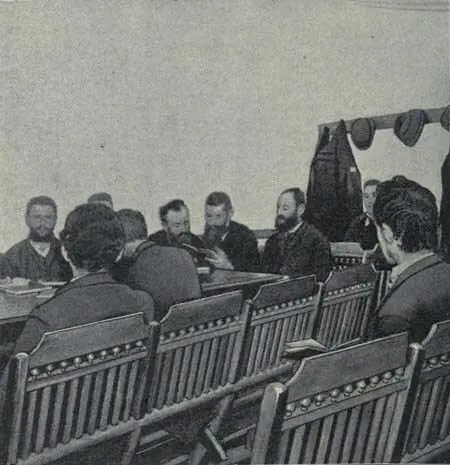
CLASS OF MELAMMEDIM LEARNING ENGLISH.
In other class-rooms in the great building, which is devoted entirely to the cause of Americanizing the young Russian immigrants, hundreds of children get daily their first lessons in English and in patriotism in simultaneous doses. The two are inseparable in the beneficent plan of their instructors. Their effort is to lay hold of the children of the new-comers at once; tender years are no barrier. For the toddlers there are kindergarten classes, with play the street has had no chance to soil. And while playing they learn to speak the strange new tongue and to love the pretty flag with the stars that is everywhere in sight. The night school gathers in as many as can be corralled of those who are big enough, if not old enough, to work. The ease and rapidity with which they learn is equalled only by their good behavior and close attention while in school. There is no whispering and no rioting at these desks, no trial of strength with the teacher, as in the Italian ragged schools, where the question who is boss has always to be settled before the business of the school can proceed. These children come to learn. Even from the Christian schools in the district that gather in their share comes the same testimony. All the disturbance they report was made by their elders, outside the school, in the street. In the Hebrew Institute the average of absence for all causes was, during the first year, less than eight per cent. of the registered attendance, and in nearly every case sickness furnished a valid excuse. In a year and a half the principal had only been called upon three times to reprove an obstreperous pupil, in a total of 1,500. While I was visiting one of the day classes a little girl who had come from Moscow only two months before presented herself with her green vaccination card from the steamer. She understood already perfectly the questions put to her and was able to answer most of them in English. Boys of eight and nine years who had come over as many months before, knowing only the jargon of their native village, read to me whole pages from the reader with almost perfect accent, and did sums on the blackboard that would have done credit to the average boy of twelve in our public schools. Figuring is always their strong point. They would not be Jews if it was not.
In the evening classes the girls of “fourteen” flourished, as everywhere in Jewtown. There were many who were much older, and some who were a long way yet from that safe goal. One sober-faced little girl, who wore a medal for faithful attendance and who could not have been much over ten, if as old as that, said that she “went out dressmaking” and so helped her mother. Another, who was even smaller and had been here just three weeks, yet understood what was said to her, explained in broken German that she was learning to work at “Blumen” in a Grand Street shop, and would soon be able to earn wages that would help support the family of four children, of whom she was the oldest. The girl who sat in the seat with her was from a Hester Street tenement. Her clothes showed that she was very poor. She read very fluently on demand a story about a big dog that tried to run away, or something, “when he had a chance.” When she came to translate what she had read into German, which many of the Russian children understand, she got along until she reached the word “chance.” There she stopped, bewildered. It was the one idea of which her brief life had no embodiment, the thing it had altogether missed.
Читать дальшеИнтервал:
Закладка:
Похожие книги на «The Children of the Poor»
Представляем Вашему вниманию похожие книги на «The Children of the Poor» списком для выбора. Мы отобрали схожую по названию и смыслу литературу в надежде предоставить читателям больше вариантов отыскать новые, интересные, ещё непрочитанные произведения.
Обсуждение, отзывы о книге «The Children of the Poor» и просто собственные мнения читателей. Оставьте ваши комментарии, напишите, что Вы думаете о произведении, его смысле или главных героях. Укажите что конкретно понравилось, а что нет, и почему Вы так считаете.
